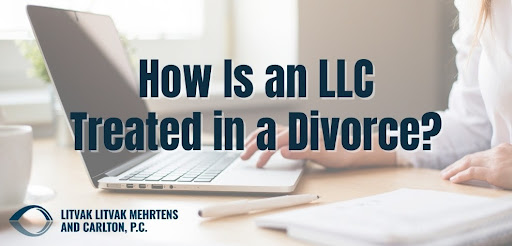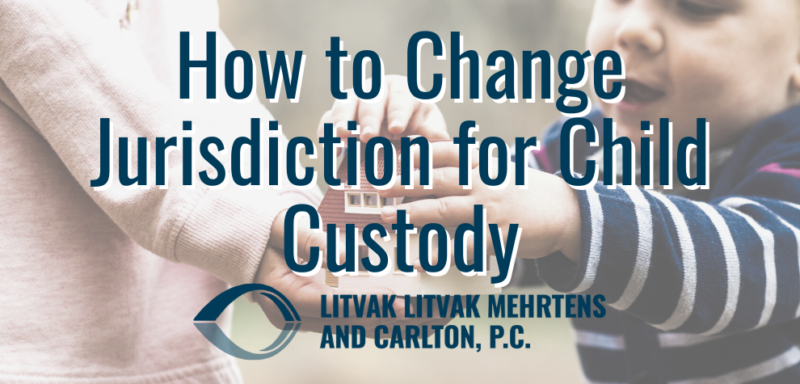When entering into a marriage, you never expect that one day it might end in divorce. Unfortunately, for many couples, it does. According to the American Psychology Association, 40-50 percent of marriages end in divorce. This percentage is even higher for individuals who have already remarried. Every marriage has its highs and lows, but it is important to know when to divorce. Divorce should never be the first resort after experiencing a few lows, but if the lows far outweigh the highs, it might be time.
At Litvak Litvak Mehrtens and Carlton, our attorneys have over 60 years of experience in handling divorce cases. We have seen many different types of cases, both uncontested and contested, and we know what it takes to handle them. If you are considering getting a divorce, let our experienced professionals help you through this challenging time.
Should I get a divorce?
In a marriage, it is normal for the feelings of love and passion to fade following the “honeymoon phase.” Things don’t always stay as innocent and cheery as they might have begun. However, when these negative emotions take over, it may be hard to establish a loss of passion from a loss of love. During these times, it’s not uncommon for the word “divorce” to slip into someone’s mind.
A lot of people decide they don’t want to be with their spouse anymore, but they are afraid of what might happen if they divorce. Often, these fears have to do with finances, children, property, or fear of judgement. These are not uncommon fears, but they can be detrimental to yourself and to your marriage. Choosing to stay with someone when you no longer love them can directly affect you and your family’s happiness. If you do have thoughts of divorce, you shouldn’t let external fears influence your decision. Consider what is best for you and your family/spouse.
It’s important to remember that there is no shame in having these thoughts. Even the best marriages have had rough patches, and most likely, thoughts of divorce. The problem is that it can be tricky to determine when to work through things and when to let the marriage go. The only people who can ultimately make that decision are you and your spouse. However, there are some telling signs that it might be time to get a divorce. We’ll discuss these below.
When is it time to divorce?
As you spend more time with a person, you learn more about them. This can be great in some cases, but in others, it can leave you feeling disappointed and longing for the person you thought you married. Sometimes people grow and develop a change in behavior or personality, and sometimes it takes a while to uncover that person.
Many people don’t realize that what we do for a person before marriage is not an indication of what’s to come after marriage. Once true colors come forward, it can leave you feeling disappointed and regretful.
When you choose to marry someone, you are choosing to accept them for who they are. Unfortunately, you may not know who they really are until it’s too late. So what then? You can try working through these differences and learning to live with them. You can also try asking them to change certain behaviors that you aren’t comfortable with. But if that compromises with your happiness or your spouse’s, who’s really winning?
You should never up and run at the first sign of negative emotions within your marriage. In fact, you should expect them from time to time. But if negative emotions begin to overwhelm the positive ones with no signs of looking up, it may be time to divorce. Feelings of love and happiness can often evolve into hurt, indifference, anger, betrayal, or anything in between. In this case, you may only be hurting yourself by staying in a relationship that is not right for you.
What are the warning signs of divorce?
As you grow with this person, you may start to realize that they are rubbing you the wrong way. What may have started as a few irritations can quickly snowball into everything they do being an annoyance. Many divorced couples say that they knew the marriage was over when they couldn’t stand to be in the same room together.
While this is certainly a big factor, it’s important to take the time to realize if this is simply a rough patch between you two or if you genuinely dislike each other. If you express your concerns and work to remedy them to no avail, this may be a sign that it’s time to end things.
Any good relationship works around friendship. You want to enjoy your time with this person. Tell them about your day. Come to them for advice or comfort. When it gets to the point that you don’t see a friend in them anymore and when you feel like you can no longer do these things, this may be a telltale sign.
When you begin to notice these signs, you should speak up about them. Letting your partner know where your head is at can give them the motivation to change or do better. It might also be that they are feeling these things, too. Keeping thoughts like this inside and allowing them to fester can quickly build up resentment beneath the surface. Harboring them will only increase their intensity and result in a further wedge between the two of you.
What is the most common age to divorce?
The United States is the 6th country in the world with the highest divorce rate. Each year, there are over 2.4 million divorces that occur. In many Western cultures like the United States, over 90 percent of people marry by the age of 50. Of these, just above 40 percent of first marriages will end in divorce. 60 percent of second marriages and 73 percent of third marriages will also end in divorce.
The average age for a couple getting divorced is 30 years old. People aged 25-39 account for 60 percent of divorces. The rate of divorce for individuals 50 years and older doubled in the last 20 years.
What are the 5 stages of divorce?
There are 5 stages of emotions that people experience when going through a divorce. These emotions are also commonly referred to as the 5 stages of grief. These are denial, anger, bargaining, depression, and acceptance. Of course, the stages don’t apply to everyone. Everyone has different and unique circumstances regarding their marriage. However, these are the emotions that are common in people who are going through the process of divorce:
- Denial-Denial may provide a sense of comfort, as it allows people to distance themselves from a harsh reality.
- Anger-This stage is heavy with feelings of rage and blame. A person will often find themselves dissecting events that occurred in the marriage that led to it ending.
- Bargaining-At this stage, it is common for both parties to battle with doubt and guilt. They may be questioning their decision and fearing the consequences.
- Depression-This stage might be the most difficult of them all. It is when the reality of the divorce has set in and emotions become overwhelming and even debilitating.
- Acceptance-This is when most people finally find a sense of peace. You may still revisit some of the previous stages, but you are no longer consumed by them. You may even feel a sense of joy and hope for the future.
Contact Experienced Denver Divorce Attorneys Today
If you are questioning when to divorce or if you’ve already decided it’s time, let our legal team help you through the process. At Litvak Litvak Mehrtens and Carlton, our attorneys have years of experience handling all family law cases throughout Colorado. Skilled Denver family lawyers such as our own can be a valuable asset for families that are going through the challenge of divorce. To schedule a consultation with us today, call 303-951-4506 or complete our online intake form here.






